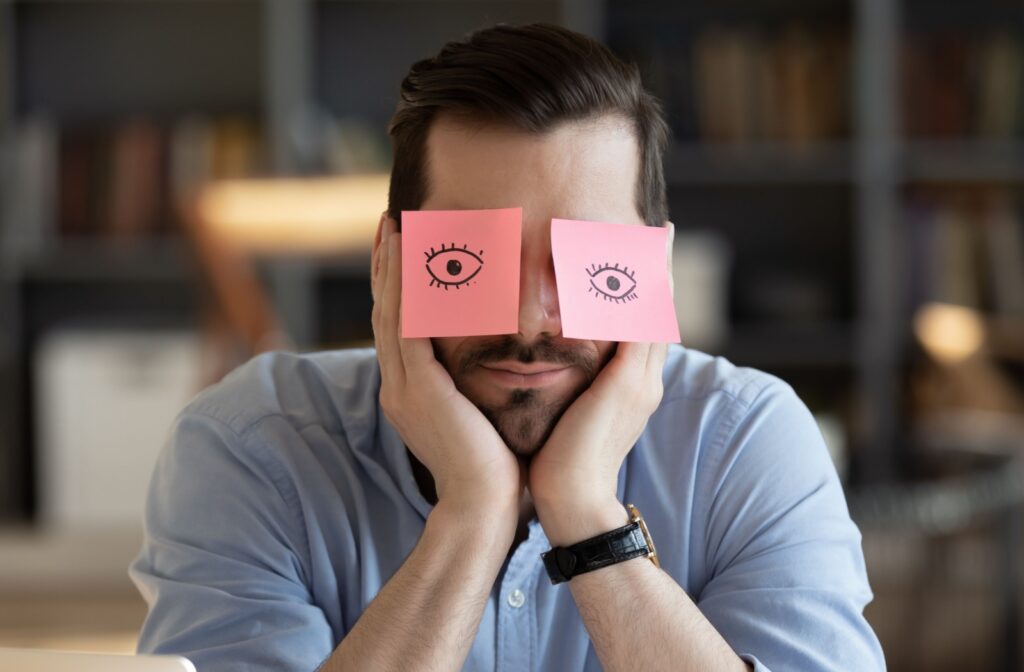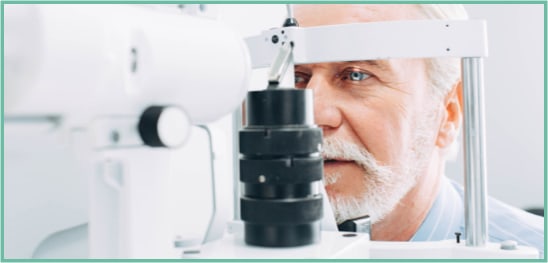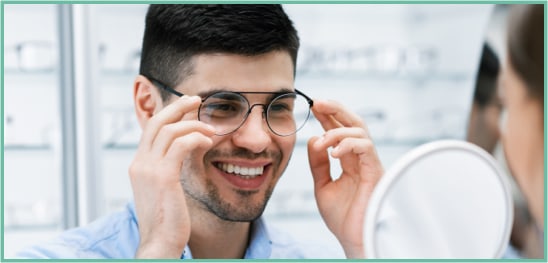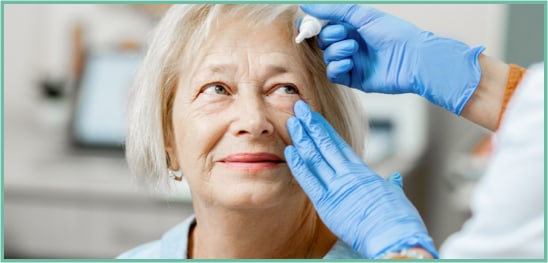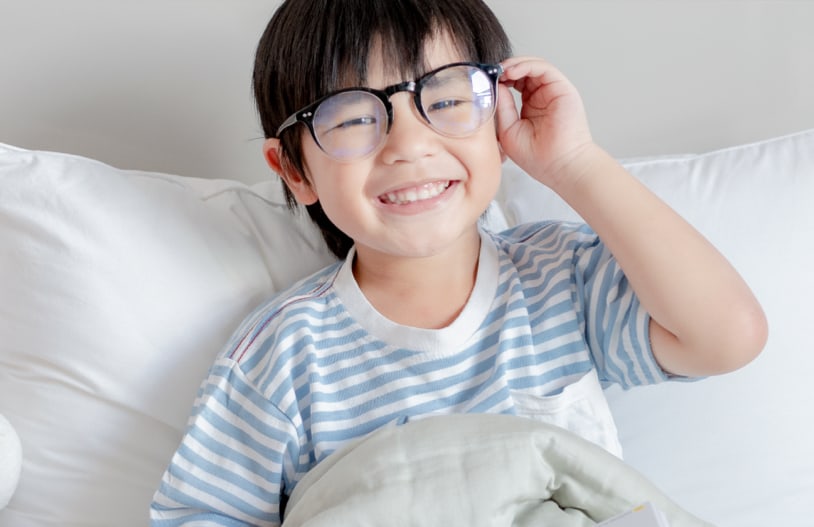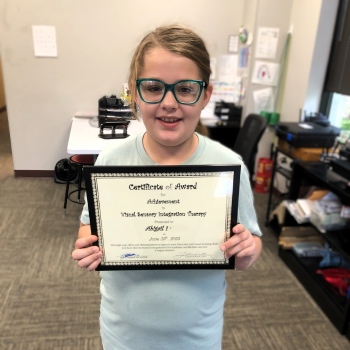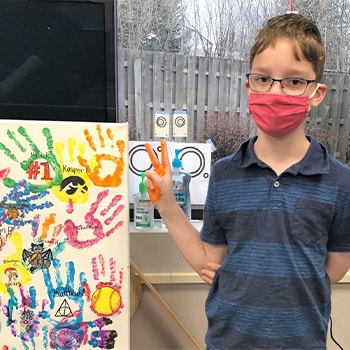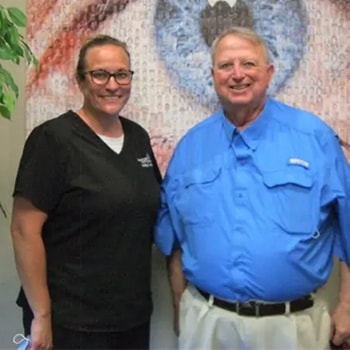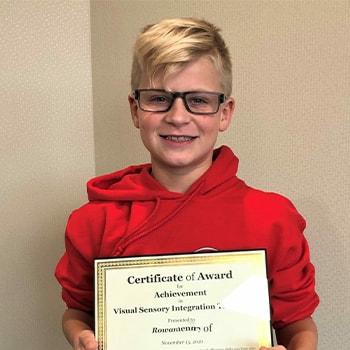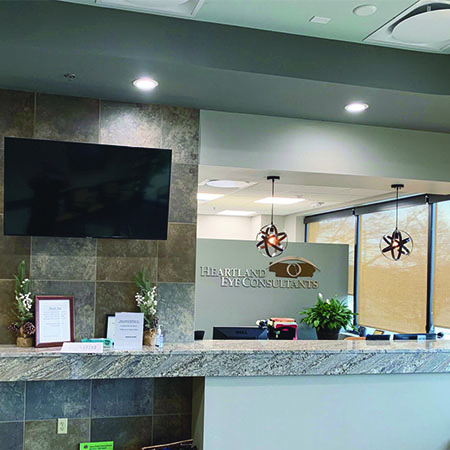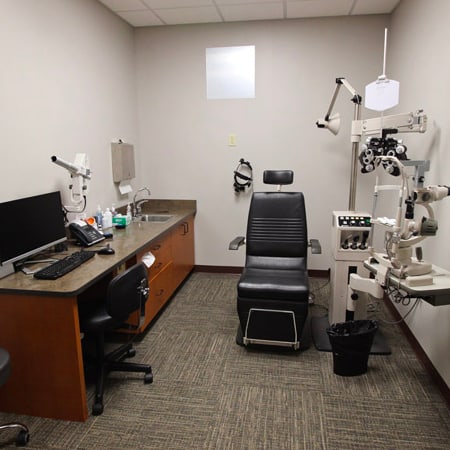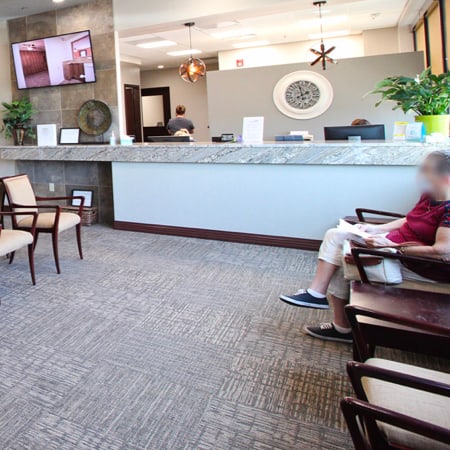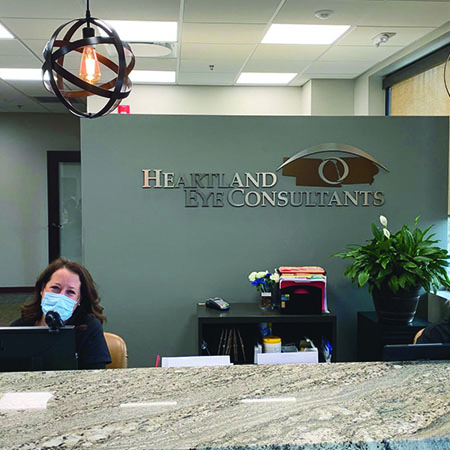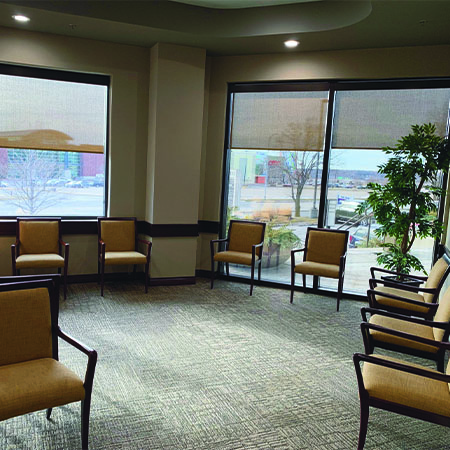Waking up with dry, irritated eyes is a frustrating way to start the day. Sometimes, it can feel like your eyes are never really comfortable. Fortunately, the good news is that there are ways to address—and prevent—this condition.
Understanding the causes of dry eye, recognizing the symptoms, and implementing some simple strategies are important ways of managing the condition. Treatment options include sleeping with a humidifier in the room, adjusting your sleeping position to avoid direct airflow on your face, using hydrating eye masks or lubricating eye ointments, and consulting your eye care professionals at Heartland Eye Consultants for advice on preventing dry eye while sleeping.
What Causes Dry Eyes While Sleeping?
Dry eyes can occur for a variety of reasons, and certain factors may intensify the issue during sleep. When you’re asleep, your blinking rate slows down or stops entirely. Blinking helps distribute tears across the surface of your eyes, so when your eyes are closed for an extended period, your tear film can become unstable. On top of that, other factors can contribute to waking up with dry eyes, including:
Incomplete Eye Closure (Lagophthalmos)
Some people sleep with their eyes partially open. This condition, known as nocturnal lagophthalmos, prevents your eyes from staying fully moistened by tears throughout the night.
Dry Indoor Air
Sleeping in a room with dry air due to air conditioning, heating, or low humidity can evaporate tears from the eye’s surface.
Environmental Allergens
Dust, pet hair, or other allergens in your bedding or air can irritate your eyes and contribute to dryness.
Medical Conditions
Conditions such as blepharitis, Sjögren’s syndrome, or certain autoimmune disorders can reduce tear production, making dry eyes more likely.
Use of Certain Medications
Antihistamines, sleeping aids, and blood pressure medications may cause dry eyes as a side effect, exacerbating the problem overnight.
Contact Lens Wear
Falling asleep with your contact lenses on or wearing them for extended hours during the day can also lead to morning dryness.
Signs & Symptoms of Dry Eyes in the Morning
Not sure if you’re dealing with dry eyes? Here are some common signs to look out for:
- Stinging or burning sensation in the eyes
- Redness or irritation
- Feeling like there’s something gritty or sandy in your eyes
- Blurred vision, particularly in the morning
- Itchiness or discomfort when blinking
- Sensitivity to light
If these symptoms sound familiar, you might benefit from exploring strategies to prevent or treat night-time dry eyes.
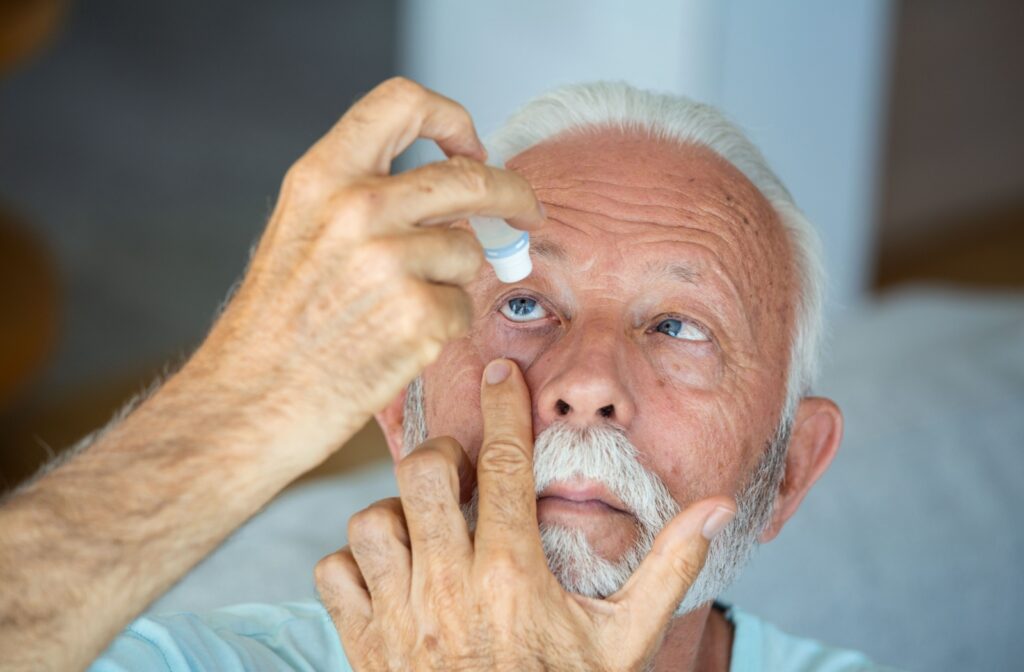
How to Prevent Dry Eyes While Sleeping
Fortunately, there are several ways to prevent dry eyes and keep your eyes comfortable while you sleep. Even small adjustments can make a big difference.
Use a Humidifier
Dry indoor air is one of the most common culprits of eye discomfort. During the colder months, furnaces and heaters often zap moisture from the air, leaving it dry. A humidifier adds moisture back to the air, helping to keep your eyes hydrated throughout the night.
Adjust Your Sleeping Position
Believe it or not, the way you sleep can also impact dry eye. Sleeping with a fan or air vent blowing directly onto your face can exacerbate dryness by evaporating tears. If possible, reposition your bed or fan to avoid direct airflow on your eyes. Additionally, using silk or hypoallergenic pillowcases may reduce irritation caused by allergens.
Try Hydrating Eye Masks or Shields
Eye masks specifically designed for dryness can help seal in moisture while you sleep. Silicone or gel masks tend to be most effective because they create a protective barrier, preventing tears from evaporating. For people with nocturnal lagophthalmos, these masks can also help protect your eyes when they can’t fully close during sleep.
Use a Lubricating Eye Ointment or Gel
Sometimes, your eyes need a little extra support to stay hydrated overnight. Over-the-counter lubricating ointments and gels provide long-lasting relief, as they’re designed to stay in your eyes longer than regular eye drops.
Apply a small amount before bed to coat and protect the surface of your eyes. However, since some products may cause temporarily blurred vision, make sure to use them only before going to sleep—never during the day.
Address Root Causes with Professional Help
If you suspect an underlying issue like blepharitis or nocturnal lagophthalmos is causing your discomfort, consulting an eye care professional can help you discover effective treatments. For example, at Heartland Eye Consultants, we specialize in treating dry eye with customized solutions. Whether you need prescription eye drops or advanced therapies like OptiLight IPL (intense pulsed light), a tailored treatment plan can bring long-term relief.
Clean Your Eyelids & Lashes
Build-up on your eyelids and lashes can block your eye’s oil glands, reducing the quality of your tear film and causing dryness. Incorporate a daily eyelid hygiene routine using a gentle cleanser or eyelid wipes to maintain healthy tear production.
Stay Hydrated & Mind Your Diet
What you consume during the day can affect your likelihood of dry eyes at night. Staying hydrated by drinking plenty of water helps your body produce tears. Incorporate omega-3 fatty acids—found in fish, flaxseed, and walnuts—into your diet to support tear health.
When to Seek Advice
Sometimes, your best efforts to manage dry eyes at home may not be enough. If your morning dryness persists, worsens, or significantly impacts your quality of life, seek help from an eye care professional.
Specialized dry eye therapy can include treatments like scleral contact lenses or low-level light therapy, depending on your needs.
Wake Up to Comfortable Eyes Every Morning
Dry eyes shouldn’t have to slow you down first thing in the morning. By understanding the root causes, recognizing the symptoms, and taking proactive steps, you can keep your eyes feeling refreshed and healthy all night long. From simple changes, like adding a humidifier to your space, to professional care from clinics such as Heartland Eye Consultants, there are plenty of ways to wake up with clear, comfortable vision.
Don’t wait—start taking care of your eyes today, and you’ll feel the difference every time your alarm clock rings. Your mornings (and your eyes) will thank you! Book your appointment today!


